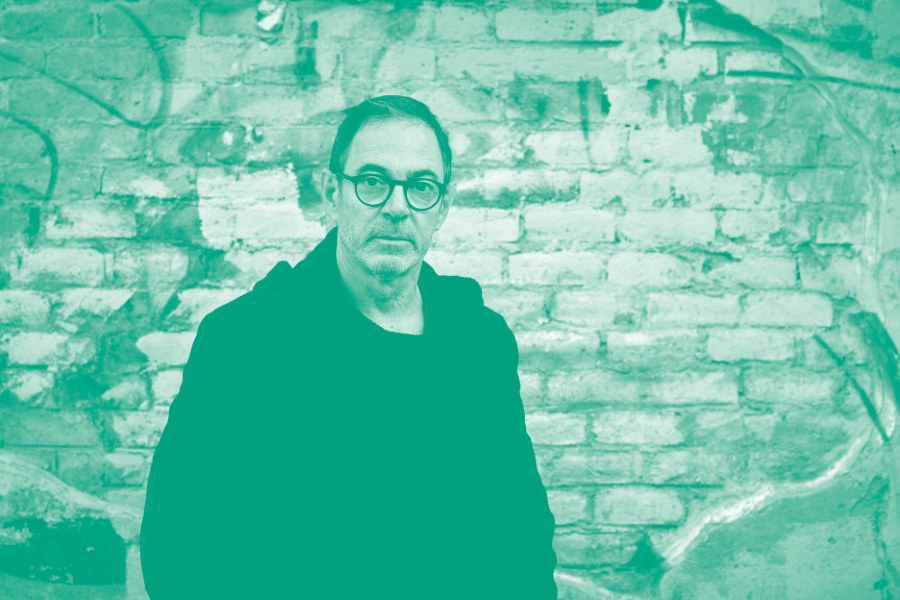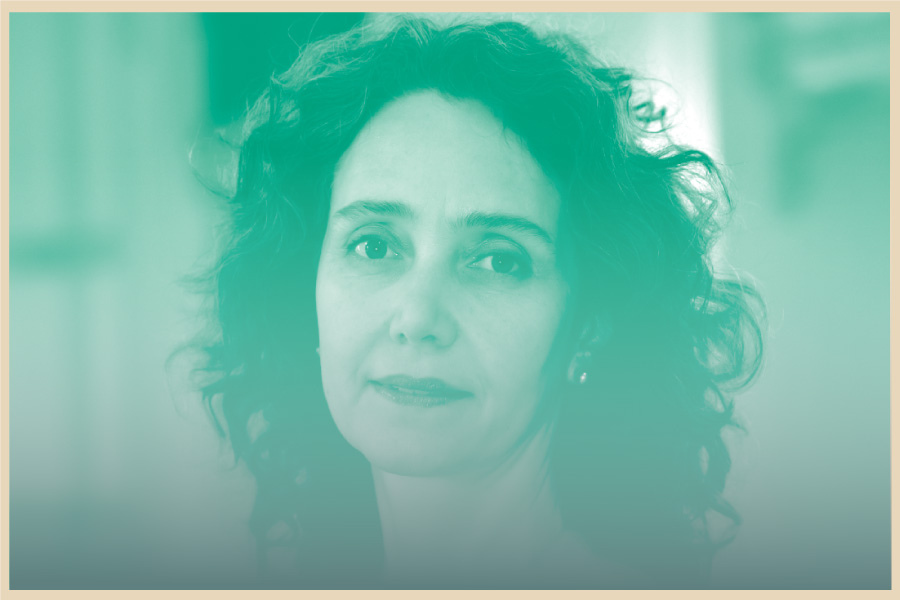La unión como punto de partida: entrevista a la productora Flavia Furtado

Por João Luiz Sampaio
La productora cultural Flavia Furtado tiene su nombre íntimamente asociado al Festival de Ópera de Amazonas, donde trabaja desde hace dos décadas. En los últimos años, sin embargo, también ha actuado a favor de reflexionar sobre el mundo de la ópera en Brasil. Verdadera embajadora de Ópera Latinoamericana en Brasil (OLA), también es una de las directoras del Foro Brasileño de Ópera, Danza y Música de Concierto, que celebra su primer año en mayo y busca identificar pautas comunes para el sector y articular la creación de políticas públicas para el mundo de la música clásica y la ópera.
“Como sector, nunca participamos en la creación de políticas públicas y ahora estamos trabajando en conjunto con otros foros, otras áreas, precisamente para ser parte de este proceso”, dice, en la siguiente entrevista, durante la cual reflexiona sobre los impactos de la pandemia en la actividad cultural, sobre la relación del actual gobierno con la cultura y sobre los posibles caminos para operar en un contexto de presentaciones marcado por estrictos y necesarios protocolos de seguridad en salud.
[Difusión / Camila Furtado]
En marzo, completamos un año de pandemia. Parece que hemos llegado a la llamada “nueva normalidad”, con actividades culturales que se abren o cierran según las cifras de contaminación y la disponibilidad de camas en el sistema de salud. Pasado ese tiempo, ¿qué valoración hace del impacto de la pandemia en la vida cultural brasileña?
Es devastador, no hay otra palabra. Para todas las artes, y especialmente para nosotros, la música clásica y la ópera, porque la aglomeración es parte esencial de lo que hacemos, una orquesta, un coro, un teatro de ópera, un espectáculo de danza. Como dicen, fuimos los primeros en cerrar y seremos los últimos en volver a la realidad antes de la pandemia. Lo que todavía vemos mucho es la búsqueda de repertorios más pequeños, re-orquestaciones, música de cámara. En el caso de la ópera, hay ejemplos que vienen del exterior, pero allí también, por cada paso adelante, hay dos o tres detrás. Es desgarrador. Y en el futuro habrá que tener en cuenta la imposibilidad de realizar giras, la menor posibilidad de invitar a artistas extranjeros. Será necesaria una reestructuración general. Por no hablar de la discusión sobre lo virtual. Existe un consenso de que la interfaz digital llegó para quedarse. ¿Pero como? Es una herramienta para llevar al público a la sala de conciertos, al teatro de la ópera. Pero, ¿en qué medida funciona como un señuelo y cuánto gana la audiencia del espectáculo en vivo? La pandemia nos hizo acelerar estas discusiones. Y la velocidad a menudo conduce a la confusión.
El problema también es acelerar este debate sobre la relación entre lo digital y el directo en un momento en el que no hay conciertos ni óperas.
Exactamente. Sin actividades presenciales ocurriendo de manera sistemática, terminas acelerando solo lo digital, y esto interfiere con la forma en que se puede tratar el problema. Tenemos que saltarnos pasos para ver luego, qué pasa, qué fue positivo y qué no funcionó. Pero creo que al menos algo bueno está sucediendo en este período, que es el intento de concretar la unificación del sector.
Esto me lleva a la siguiente pregunta, en relación al Foro de Ópera, Danza y Música de Concierto, que este mes cumple un año de existencia y parece, contrariamente a experiencias anteriores, cobrar fuerza.
Ha sido una sorpresa para mi. Y es lo que hace del Foro una fuente de esperanza e inspiración. Como dijiste, no es el primer intento de unir al sector, pero ciertamente funcionó, reuniendo a doscientas instituciones de todo el país. Creo que cada vez que intentamos hacer eso, y aunque las iniciativas salieron mal, siempre aprendimos algo. Usamos esos ejemplos pasados al momento de crear tácticas y estrategias diferentes. El foro tiene veinte directores, personas que hace un tiempo atrás crearon un grupo de Whatsapp para discutir lo que ocurría. Es una locura, pero entendemos que, en los dos primeros años, todos deben participar en la búsqueda constante de consensos. Y son todas personas comprometidas con el sector, que comprenden la necesidad de dejar de lado las diferencias y pensar en objetivos comunes. Es una junta directiva muy cohesionada, generosa y colaborativa. Y lo que ya logramos fue importante. Discutimos pautas comunes, pensando en el largo plazo. Como sector, nunca participamos en la creación de políticas públicas y ahora estamos trabajando en conjunto con otros foros, otras áreas, precisamente para ser parte de este proceso. Estamos dialogando con la clase política, con el foro de secretarios estatales de cultura, con el Ministerio de Educación, con las comisiones de la Cámara de Diputados y el Senado. Estamos ganando peso. No es un trabajo fácil ni rápido, pero debe comenzar ahora.
Usted menciona la creación de planes a largo plazo. La posibilidad de construir acciones para el futuro tiene que considerar diferentes aspectos, educación, modelos de gestión, etc. Entre ellos, ¿cuál sería el punto fundamental para una planificación menos inmediata?
De hecho, hay varios problemas. Y ninguno de ellos se puede debatir sin que se materialice la unión del sector. Puedes tener buenos proyectos aquí y allá, pero no necesariamente significan una visión más amplia del área. En reuniones que, hace años, tuve en el Ministerio de Cultura, hablando de la importancia de la ópera como sector, siempre escuché de ellos: las políticas públicas se crean en diálogo con todo el sector. Y me entusiasma esta búsqueda de agregar, de unir, quizás porque la ópera es esa unión de tanto. Me gusta mucho el trabajo de Ópera Latinoamérica (OLA) y tuve la oportunidad de conocer las iniciativas de Ópera América y Ópera Europa. Lo que aprendí de ellos fue que el éxito de otro proyecto también ayuda con lo que hago. Un estado se sentirá más apto para invertir en proyectos cuando vea que funcionan en otros estados. Y, por eso mismo, el intercambio de experiencias e información es fundamental. Trinidad Zaldivar, del Banco Interamericano de Desarrollo, dice que el siglo XXI es el siglo de las redes. Esto permite que el sector se articule y hable claramente con la sociedad, incluidos los gobiernos y el sector privado. Llegamos tarde a esta percepción, pero al menos llegamos con un cuerpo significativo.
Una de las banderas que usted defiende es la economía creativa. En un contexto de crisis económica y búsqueda de la recuperación del crecimiento, ¿cree que esta noción puede ser importante a la hora de mostrar la relevancia de la cultura?
Creo que sí. Pero todavía hay mucho miedo ante esta idea, incluso dentro del entorno cultural. Y eso, creo, está relacionado con la forma en que los gobiernos lo entienden.
Para los gobiernos, parece que hablar de economía creativa es hablar de buscar proyectos que se paguen por sí mismos, sin fondos públicos …
Exactamente. Pero eso es porque leyeron solo la primera página e ignoraron el resto. Hablar de economía creativa no es hablar de autorregulación del mercado, en cambiar la inversión estatal por inversión privada. La cultura nunca sobrevivirá sin el apoyo del Estado. Asimismo, al enfatizar la importancia económica de la actividad cultural, no se trata de reducir la cuestión social o pedagógica inherente a lo que hacemos. Pero, para justificar lo que hacemos, debemos utilizar todos los activos que tenemos a nuestra disposición. Y no hay que tener pudor sobre el tema económico. Luego de dos décadas del Festival de Ópera Amazonas, ya vimos que se formó ese niño que iba a ver la ópera en la plaza, tocando en la orquesta, cantando en el coro. Pero esta es una construcción a largo plazo, que no ocurre de la noche a la mañana. El tema económico, sin embargo, nos ofrece cifras y situaciones inmediatas que muestran al político que, en cuatro años, podrá utilizar la inversión en cultura en su plataforma en las elecciones, con buenos resultados laborales y retorno de la inversión. Otro aspecto tiene que ver con la idea de los cogollos de naranja. Una naranja tiene varios cogollos, pero no se mezclan. Esto significa que un plan de inversión en cultura no puede ser el mismo que en otras áreas. Empezando por el hecho de que una orquesta y un teatro de ópera no son rentables. Hoy existe consenso en que, entre las estrategias para la recuperación económica más rápida en el mundo post pandémico, la cultura es fundamental por su capacidad de impactar la realidad local en la generación de empleo, por ejemplo, rápidamente. En Brasil, sin embargo, este no es el caso.
Hoy vivimos en un contexto nacional de marginación de la cultura y de total relativización de la actividad cultural, asumido abiertamente por el gobierno federal. ¿Cómo pensar estrategias para el sector en medio de esta realidad?
Es el gran desafío, pensar en cualquier futuro en un país que maltrata la cultura, no la comprende, no comprende sus mecanismos. La Ley Rouanet existe desde hace tres décadas y sigue siendo blanco de ignorancia y prejuicios. Y no hay interlocutores en el gobierno federal con quienes podamos hablar. Por eso, en el foro, hemos optado por una conversación con el Legislativo, buscando pensar en formas de detener un poco esta masa de ataques, que viene en declaraciones redundantes y prejuiciosas.
La Ley Rouanet, como usted dice, es uno de los principales objetivos del gobierno. ¿Cómo afectará este ataque a la actividad cultural en los próximos años?
Ya está impactando mucho y provocando el cierre de muchos sectores. El gobierno ha creado barreras para los proyectos que quieren ingresar al sistema. La decisión de que solo se pueden analizar seis proyectos por día y, por lo tanto, solo se pueden proponer seis nuevos, redujo el número de proyectos en un 80%. Y hay otra barrera. Cuando el ministerio crea prioridades, como acaba de hacer, centrándose en proyectos virtuales, crea otro cuello de botella. Porque no se hace un proyecto hasta dentro de quince días. Una iniciativa que sucederá en 2022 debe registrarse en 2021. Y, si no puedo hacer eso, no puedo ser juzgado, aprobado y no puedo obtenerlo. Además, quienes obtuvieron patrocinio no pueden usar el dinero, que termina siendo devuelto a la caja fuerte federal, y se puede usar en cualquier área de la administración pública. En otras palabras, no es solo el proyecto el que pierde dinero. Toda el área cultural pierde fondos.
Volviendo al mundo de la ópera. Los músicos en el foso, el coro, varios solistas: todo esto parece poco probable dentro de las necesidades sanitarias que conocemos hoy. Para una orquesta, si renuncia a una obra con coro, todavía tiene un vasto repertorio a su disposición. En el caso de la ópera, ocurre lo contrario. ¿Cree que necesitaremos, antes de volver a la realidad anterior a la pandemia, repensar por completo el repertorio de los teatros de ópera?
Sí, porque creo que no tiene sentido hacer los grandes títulos del repertorio en reducciones de cámara. Artísticamente, es mucho más interesante buscar alternativas. Y existen en forma de repertorios de cámara disponibles y también en inversión real en la música contemporánea, en nuevos títulos que incluso dialogan con el momento actual, que, por cierto, es función de la actividad artística.
¿Y usted cree que el mundo de la ópera está preparado para eso, para un teatro de ópera en el que se deja fuera el llamado gran repertorio?
No está. El mundo de la ópera tiene a aquellas personas que piensan mucho a la luz de las vanguardias, pero también a aquellas para quienes la ópera es el repertorio canónico. Este es un universo muy apegado a la idea de repertorio. Por lo tanto, será necesario que hagamos un ejercicio de abrir la mente. Y no sé cuánto estamos preparados para eso. Pero puedo decir que se ha reflexionado mucho sobre este tema. En los grupos que reúnen a directores de teatro, es un tema central. Puedo decir con seguridad que esto nunca se ha debatido tanto como hoy.
Gracias por la entrevista.
*Nota original en Revista Concerto





